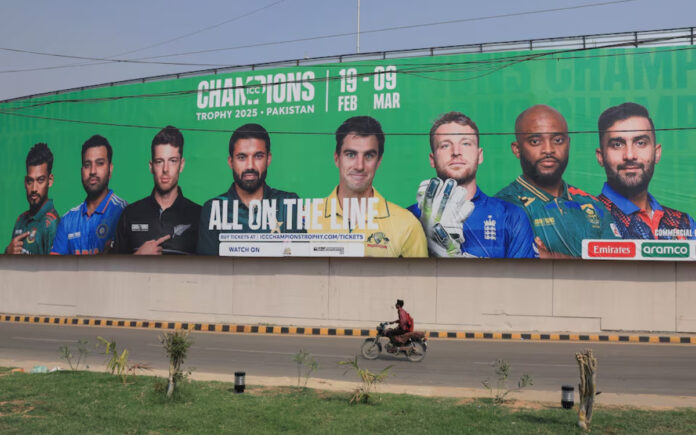Islamabad: Pakistan is set to host its first multi-nation cricket tournament in nearly 30 years, aiming to reshape its global image and restore confidence in its stability. The Champions Trophy, beginning next week, arrives as the country grapples with ongoing insurgencies and a political crisis that has led to the imprisonment of former Prime Minister and cricket icon Imran Khan.
Despite these challenges, Pakistani officials and cricket authorities see the elite tournament—featuring the world’s top eight teams—as a golden opportunity to enhance the country’s reputation as a safe destination for tourism and investment.
A Symbolic Return for Global Cricket
Cricket is more than just a sport in South Asia—it is a passion, a multi-billion-dollar industry, and a symbol of national pride. Pakistan Cricket Board (PCB) Chairman Mohsin Naqvi, who also serves as the country’s interior minister and security chief, emphasized the significance of the event.
“The return of global cricket is not just about hosting matches. It is about restoring pride, igniting national passion, and giving back to the millions who have stood by Pakistan cricket,” Naqvi stated.
Pakistan has long struggled with security concerns stemming from the 2001 U.S.-led war in Afghanistan, which fueled instability in the region. The situation deteriorated further after the 2009 terrorist attack on Sri Lanka’s cricket team in Lahore, leading to a near-decade-long suspension of international tours. However, since 2018, foreign teams have gradually resumed playing in Pakistan, and the country is now ready to host its biggest event since the 1996 Cricket World Cup.
Security and Logistics: A Massive Undertaking
The Champions Trophy will feature teams from Pakistan, New Zealand, England, Australia, Afghanistan, South Africa, Bangladesh, and India. However, India has opted to play its matches in Dubai rather than Pakistan due to long-standing diplomatic tensions. New Delhi has cited security concerns, accusing Islamabad of supporting militant groups—an allegation Pakistan denies.
While security has significantly improved in major cities, Pakistan continues to combat insurgencies in the north from Islamist militants and in the southwest from Baloch separatist groups. However, officials maintain that violence remains confined to remote areas and that the tournament will be held without disruption.
Hosting such a major event requires extensive logistical coordination. Naqvi described the effort as a “monumental task”, requiring enhancements across various sectors, from infrastructure to security.
“Players are treated as state dignitaries for enhanced security,” said Shahzada Sultan, deputy police chief of Punjab province, where two of the three tournament venues are located.
More than 20,000 security personnel have been deployed across Lahore, Karachi, Rawalpindi, and Islamabad, including snipers on rooftops along key transit routes. Hotels, stadiums, and airports will be heavily guarded, and AI-powered facial recognition cameras—around 10,000 in total—have been installed to enhance surveillance.
Authorities have not disclosed the exact number of international visas issued for the event, but large crowds of foreign fans are expected. Police have promised “ironclad” security for both players and spectators.
Pakistan’s Cricket Revival Amid Political Unrest
Pakistan last hosted a World Cup in 1996, at a time of optimism for the country’s sporting future. That year, the national team, led by Imran Khan, had recently won the 1992 World Cup, cementing his status as a national hero.
Today, however, Khan remains behind bars on corruption charges, following his fallout with the military. His supporters argue that the charges are politically motivated, fueling ongoing protests and clashes with security forces.
Also Read | Lai Ching-te Vows Talks with U.S. on Chip Industry, Plans Increased Investment
A spokesperson for Khan’s party described the country’s political atmosphere as “suffocating” but welcomed the return of international cricket, expressing hope for Pakistan’s success in the tournament.
Despite the tournament’s positive impact on Pakistan’s international image, the absence of India’s participation on Pakistani soil remains a diplomatic setback. India and Pakistan have fought three wars since their independence from Britain in 1947, and their cricket rivalry is one of the most-watched sporting contests globally. However, due to political tensions, they only face each other in neutral venues during multi-nation tournaments.
Also Read | TikTok Returns to U.S. App Stores as Trump Delays Ban
A Step Forward, But More to Achieve
The Pakistan Cricket Board (PCB) has not officially commented on India’s decision to play in Dubai, but former PCB Chairman Najam Sethi acknowledged that having India compete on Pakistani soil remains the ultimate goal.
“This is the culmination of a long six-year trend of everyone coming to Pakistan… but the big thing will be when India and Pakistan play each other in Pakistan,” Sethi said. “That will be the big breakthrough.”
As the Champions Trophy unfolds, Pakistan hopes the successful execution of this high-profile tournament will mark a turning point—demonstrating to the world that the country is ready to host international sporting events on a grand scale once again



